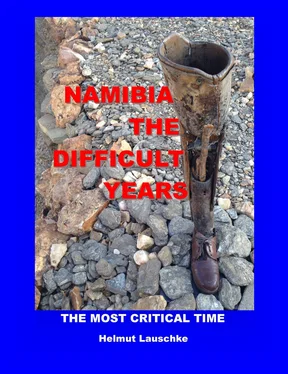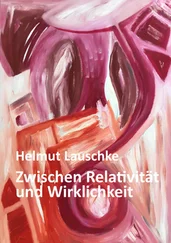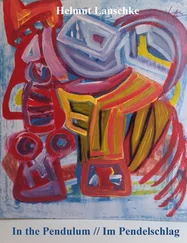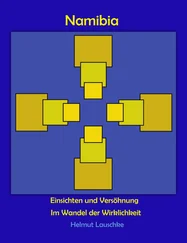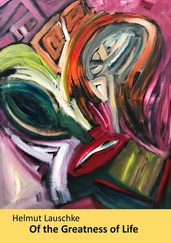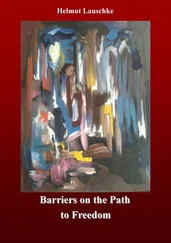The working climate became even more tense with the major on the superintendent’s chair and the dark machinations of the neurotic lieutenant of the devil as an extended military ear. The contra-productive activities inside the hospital gave the mirror image of a neurotic strategy combined with nervously shaking military and paramilitary activities in an exhausted apartheid system outside the hospital as well. The conditions were miserable and the medical facilities were defective. The wards were overcrowded and some funnel-shaped zinc toilets did not work or were clogged. The water pressure was weak and the old water pipes were rusty and furred up. There were hours and days that the hospital was without water when the pipes outside the hospital were broken and the repair took longer than told. Was the water pressure high, the water squirted through the holes of rusty water pipes. If not the water, the power was cut off with a negative impact on the operative work in the theatres, the central sterilization unit and the work at large. Excrements as diarrhoeal or piled were lying in the children’s ward and outside the wards marking the unhygienic state of emergency.
I criticized the indifferent behaviour of the people in charge, whether they were civilians or people in uniform who have neglected or ignored the problems of the toilet conditions and of the lacking hygiene in and around the wards. It was the academic status that these people did not put their noses over the badly smelling toilets or have looked into the filled-up funnels. But hygiene in general and in a hospital especially starts with the toilet conditions. If a doctor kept the hands clean by washing them after various procedures, he should understand the importance of cleanliness that includes the ward toilets as well. A medical doctor has not only to keep his hands clean, he also is responsible for the cleanliness in the wards where he does his daily round to see and examine the patients. It was one basic obligation that the doctor’s responsibility should not come to a halt without considering the smelling and otherwise malfunctioning toilets. The question is justified how patients should respect doctors who impose the unhygienic and smelling toilet conditions on them.
The new superintendent neglected the hospital and its needs and imposed his unreasonableness with the state of dilapidation on the patients, the nursing staff and medical doctors. The Bantu-administration run by white clerks did nothing to correct the mismanagement that lasted too long. No single administrative ‘arse’ came to the hospital to look into the vast number of burning issues what the stuttering Sekretaris with the square face had promised several times and long ago. The people in the administration had given up their interest and responsibility to restore the hospital to a better condition. They sat back in their comfortable and air-conditioned offices and kept the faces of innocence when they took their coffee and tea breaks every day at the same time and of the same duration by following up their private interests that were substantially pleasant and profitable. The personal advantage lay in the centre of their thinking that they did not ‘waste’ their time on public issues like the anyway neglected hospital. If the phone line went through, administrative people consistently complained of work overload, though they finished office hours always in time and returned home, if no private business after hours were to handle. The doctors with their work-related small salaries without car and other allowances had still to work hard in seeing and treating patients waiting in huge numbers or to perform the unexpected emergency procedures.
One question remained: Where is the money allocated in the budget for maintenance, repair and replacement in the hospital? This question came periodically up, at least once in a year when the miserable conditions with the big number of lacks and shortcomings were pressing on the eyes and depressing the minds of those people who did the hard work with dedication on the patients. In which direction had the money disappeared? This question answered itself by observing the lasting situation of the critical conditions and by getting insight into the administrative mismanagement by measuring the scale of corruption. If book keeping were done in transparent ways, money could not simply disappear. Where were the pockets, bags and other containers that were filled with money what was allocated for the hospital? The question remained unanswered in all the years. But in wartime it is known that things went missing without coming back. The fire-reds of sunsets and sunrises indicated that something new was on the brink that could be expected very soon. The old time ran out and the whites met their measures, if things were not handled timely or would go wrong.
That unprotected black people suffered most, it did not bother much the apartheid-privileged people who kept focused on their lives and properties often with a collection through the years and that in contrast with the poverty of the black people, who were hoping for a better future by getting rid of the forced degradation and discrimination by the apartheid laws and regulations. So signalled the fire-red over the horizon for the ones the change with the hope for betterment by liberation and release from the white chains, and for the others the change was packed with worries and fears how the way would go into the uncertainty of an irrevocable future.
However, the white administration was still in place with the stuttering Sekretaris on top, who did not bother about the dilapidated condition of the hospital. All the written and reasoned requests of Dr Witthuhn when he was the civilian superintendent had remained unanswered. Urgent requests had never reached the practical phase of quotations or ordering. Piles of letters and requests lay on desks of the administration and were laid ‘ad acta’ without response. If a hospital person visited unexpectedly the administration to query why there was no response, no letters were found, but cups, glasses, bottles, teapots and sugar bowls were on the plates.
The visitor were pleased with excuses of work overload what was almost always the first shield of defence. There were other things to arrange which had little or nothing to do with the hospital and the numerous written requests, if not hospital-allocated money was already moved into non-hospital related channels. A clearly substantiated answer was never given that the visitor returned to the hospital without result. The visitor could make his own thoughts on the forty-five-kilometre-road back to Oshakati why he had achieved nothing by his visit. The fact of mismanagement and the suspicion of corruption lay on the hand.
Administrative people with greying hairs and the blink of harmlessness knew what they were doing. They were well-rested and motivated in their businesses when they sat the office hours comfortably on chairs behind empty desks with the little work to do in their air-conditioned offices. It was in their power in which direction the budgeted money had to go. Despite the shruggings of not knowing whereto the money has gone which was allocated for the hospital, these people knew of the slidings in which they were administratively or otherwise involved. The suspicion despite the miserable state of the hospital was evident that money had been shifted to anywhere under the hand of mutual confidentiality. The amounts were considered as quite substantial what was moved to other non-hospital related channels.
Auditors from the central administration investigated a case of a Ford mini-loader of which the engine was replaced twice in one year, though the first engine had driven less than twenty thousand kilometres. The four tyres on this car were replaced several times in the same year. The investigation led to the suspicion that something was not in order. The auditors went to the office of the Sekretaris to get more insight into the mysterious story. However, the Sekretaris leant back with an innocent blink and shrugged his shoulders. The auditors showed him the entries in the book, but the Sekretaris continued shrugging his shoulders and blinking his innocence. He as the auditors sat up on the chairs and were looking in the opened book. The auditors waited for an explanation what the Sekretaris was unable to give. He put up the phone and ordered stutteringly the person responsible for the car pool to his office. The stocky gentleman in the middle of his age entered the office with a face of the total innocence. The Sekretaris explained to him the problem in connection with the Ford mini-loader in the language of the Boers, but the gentleman from the car pool kept quiet with an innocent face as he could not understand the point. The auditors became annoyed. They pulled out the invoices and receipts of payment for the replaced engine and tyre sets and put them on the desk of the Sekretaris, who pulled his face with grimaces of ignorance and unwillingness to understand.
Читать дальше
